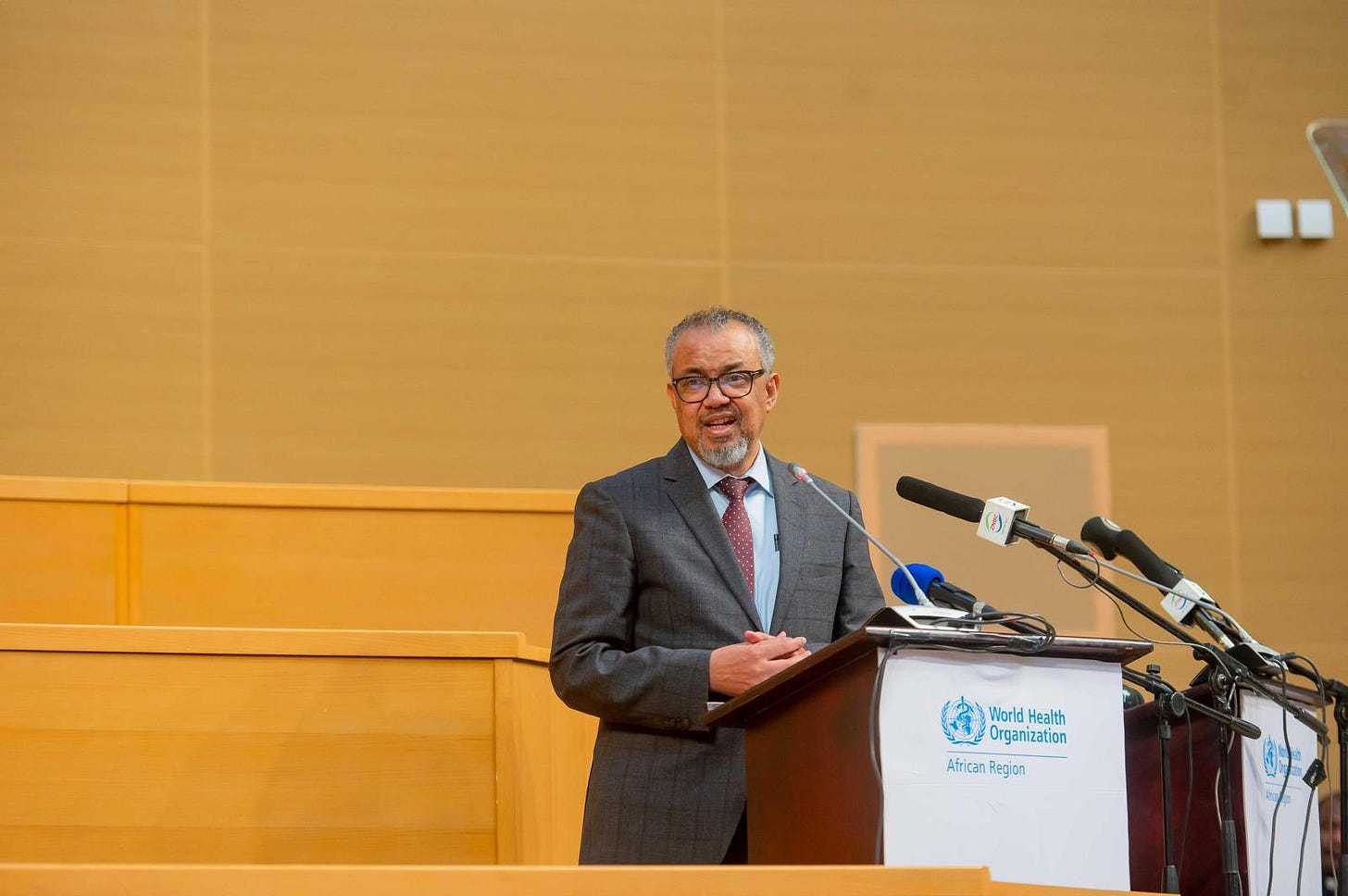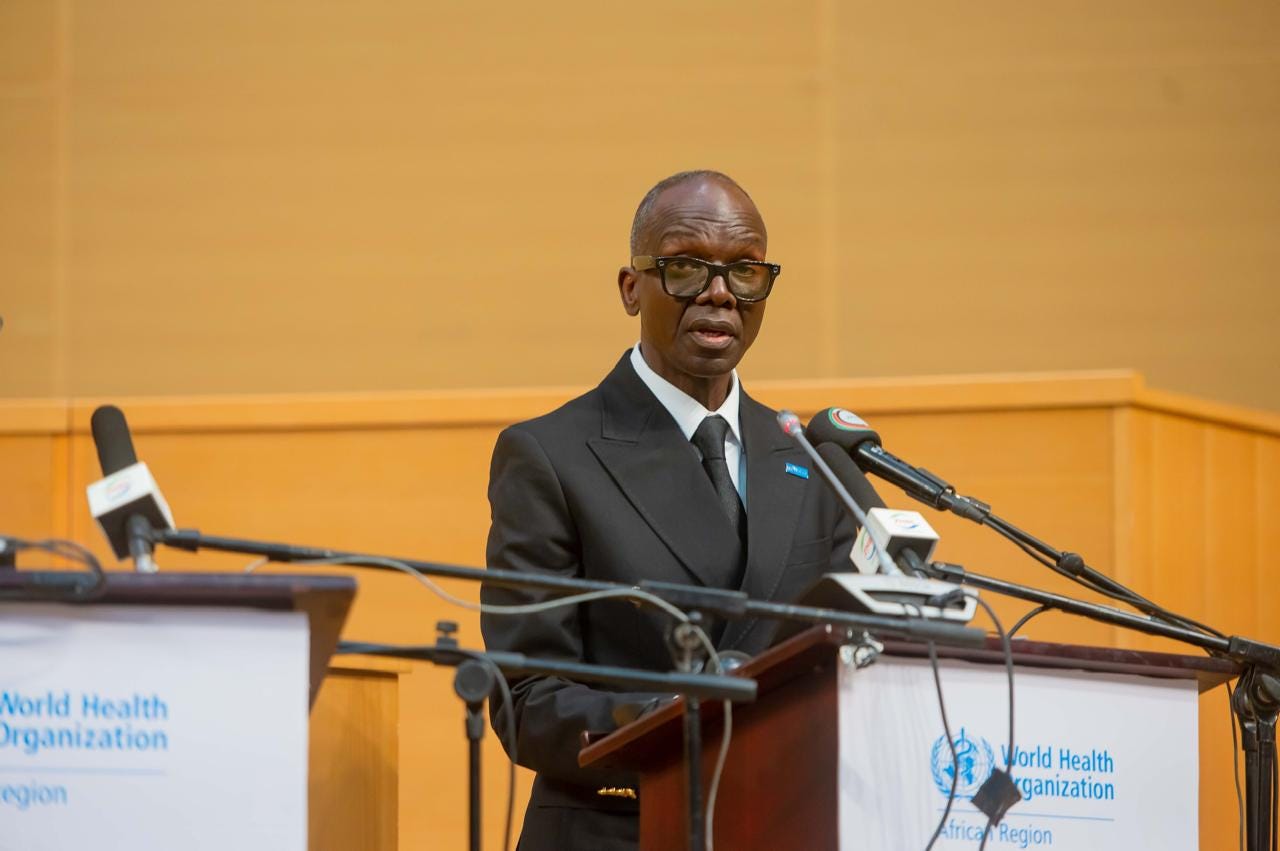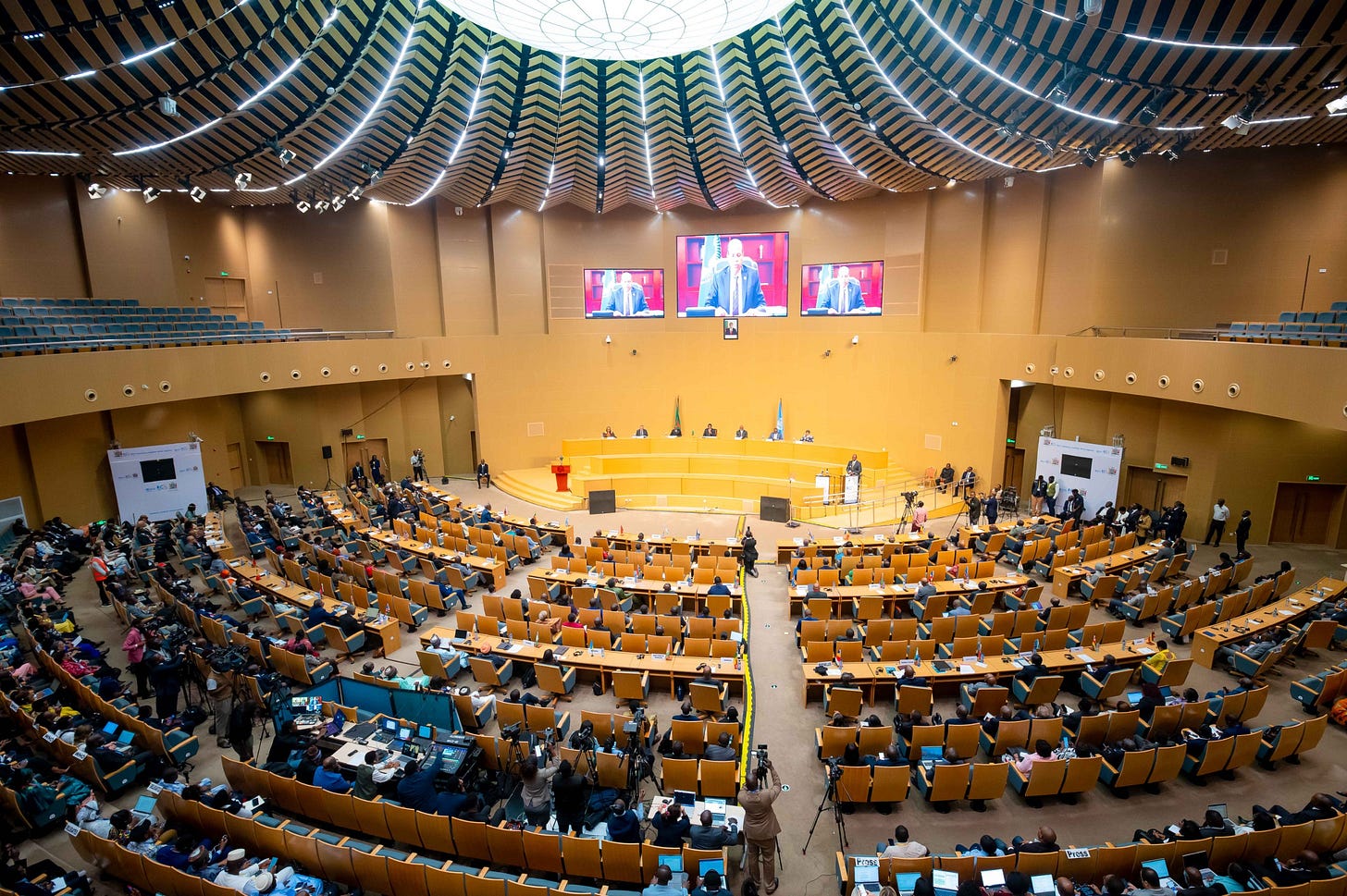Africa’s Health Future in Focus as the 75th WHO Regional Committee for Africa Session Concludes in Lusaka
Chioma Nnamani
On 25 August 2025, Ministers of Health and other health leaders from across Africa converged in Lusaka, Zambia for the Seventy-fifth session of the WHO Regional Committee for Africa, a gathering of Member States of the WHO in the African Region meant to identify priorities and define strategies to address public health challenges on the continent.
Every year, the WHO Regional Committee for Africa brings together health ministers, policymakers, and development partners to shape the continent’s health agenda. The Seventy-fifth session, held in Lusaka, Zambia on the 25 August 2025, opened with a call for unity, the need for stronger financing mechanisms, and self-reliance in building resilient health systems across the continent. It was no surprise that financing for health was on top of the agenda, given the challenges being faced by the withdrawal of donor funds across the continent.
Speaking at the opening of his first Regional Committee meeting, WHO Regional Director for Africa, Prof. Mohamed Yakub Janabi, reflected on Africa’s most pressing challenges. Shifting financial models, geopolitical tensions, climate change, and the rising threat of antimicrobial resistance, which he described as a “slow-motion pandemic”. He emphasised, however, that Africa’s history is one of resilience and despite these hurdles, he believes the future of health on the continent will be transformed.
Building on this, WHO Director-General, Dr. Tedros Adhanom Ghebreyesus, challenged African countries to take active steps in shaping their health future. He urged governments to “use every tool at their disposal to generate financing for health,” stressing that this is central to charting a future that is healthier, safer, and free from the yoke of aid dependency.

The call for self reliance is an urgent one. Africa currently produces less than 1% of global vaccine supply, despite consuming approximately 25% of global vaccines, causing the continent to be highly vulnerable to supply chain shocks and fluctuating global prices. “We cannot keep depending on someone’s philanthropy for Panadol in our health centres,” said Zambia’s President, Hakainde Hichilema during his inspiring opening address. “The time has come for Government, private sector, WHO and our health systems to work together to drive growth through investment and regional trade”
This ambition, however, is not without precedent. In 2021, African leaders launched the Partnership for African Vaccine Manufacturing (PAVM) under the Africa CDC, setting a bold target to produce 60% of the continent’s vaccine needs by 2040, with interim milestones of 10% by 2025 and 30% by 2030. Though progress has been slower than anticipated, but there are signs of what can be achieved.
Prof. Janabi highlighted Zambia’s progress in increasing domestic health investment, championing local cholera vaccine manufacturing, and reducing maternal mortality as proof that political will and strategic investment can yield tangible results.
The State of Health in Africa
Prof. Mohamed Yakub Janabi in his annual regional Director’s report, covering July 2024 to July 2025, outlined both the challenges and progress made across the region. He acknowledged that the past year tested Africa’s health systems like never before. From funding crisis to three leadership transitions, and more than 160 public health emergencies. However, he stressed, “we stood firm through it all.”

Prof. Janabi’s report rested on four strategic pillars that reflects Africa’s shared vision for health. The first focused on scaling up Universal Health Coverage (UHC) to ensure essential services are available to everyone, especially the most vulnerable. The second emphasised strengthening emergency preparedness and response, so countries are better equipped to act fast in times of crises. The third addressed healthier populations, with an emphasis on nutrition, maternal health, and mental well-being, and the fourth pillar centered on leadership, innovation, and resilient health systems as the foundation for lasting change.
While highlighting the magnitude of WHO’s support to member states over the past year, Prof. Janabi noted that the organisation worked alongside countries to respond to more than 160 emergencies, ranging from cholera outbreaks to floods, displacements, and viral epidemics. “These responses were backed by rapid coordination, strengthened surveillance systems, and efforts to ensure that essential services such as immunisation and maternal care were not disrupted. To sustain these efforts, WHO also mobilised over $66 million through the Africa Investment Round, showing how important the World Health organisation still is for countries in Africa. More than 221 million children were reached through polio campaigns in 24 countries, while 107 million children received measles vaccines in 21 countries. Malaria vaccines were rolled out in 19 countries, reaching over 600,000 children. This is more than a scientific breakthrough,” Prof. Janabi told delegates, “It is a promise of survival and hope.”
Over the past year, 17 countries adopted WHO’s essential NCD service package, and within this framework, 20 countries are already implementing the PEN-Plus strategy, expanding access to critical care at the primary health level.
Prof. Janabi also noted progress in medicine regulation, noting that 33 countries improved their systems to enhance access to safe and effective medicines, citing Rwanda, Zimbabwe, and Senegal as leading examples of progress.
Emergency preparedness and rapid response was another area of focus. In the past one year, WHO supported countries in navigating 168 public health emergencies, monitoring 88 health events, and responding to five Level 3 emergencies. Also, more than 2,300 responders were trained, achieving 77% of the target for building a skilled African Emergency Workforce.
Roadblocks to Resilient Health Systems
However, challenges remain. Prof. Janabi noted that many African countries operate in fragile contexts, where conflict and humanitarian crises disrupt health services and erode public trust. The reliance on external funding, imported vaccines and medicines has also undermined long-term sustainability, leaving populations vulnerable to global inequalities and shocks. In addition, the continent’s health workforce is over-stretched and under supported, limiting the ability to deliver essential services and respond swiftly to emergencies.
To overcome these barriers, decisive action is needed. “Expanding pooled procurement can reduce costs and improve access, while strengthening surveillance and regulatory systems will help detect threats early and respond effectively.” He further highlighted the importance of ensuring access to essential diagnostics, leveraging technology to bridge service gaps, and implementing strong policies to optimise innovation steps that are critical for building resilient health systems across Africa.
“As we look ahead, equity must remain our compass, domestic financing must echo our systems, innovation and data must drive our delivery, and above all, people must remain at the heart of every action we take”
~ Prof Mohamed Yakub Janabi
Why this matters
The Seventy-fifth session of the WHO Regional Committee for Africa is more than a routine meeting. It is an important moment for setting priorities that affect the health and well-being of millions across the continent. With the funding cuts that have left countries to struggle with sustaining critical programmes, the growing burden of non-communicable diseases like diabetes, cancer, and hypertension, recurring outbreaks like cholera and mpox, gatherings like this provides a platform for leaders to re-commit to self-reliance, stronger financing, and collaborative strategies that can turn challenges to opportunities.


